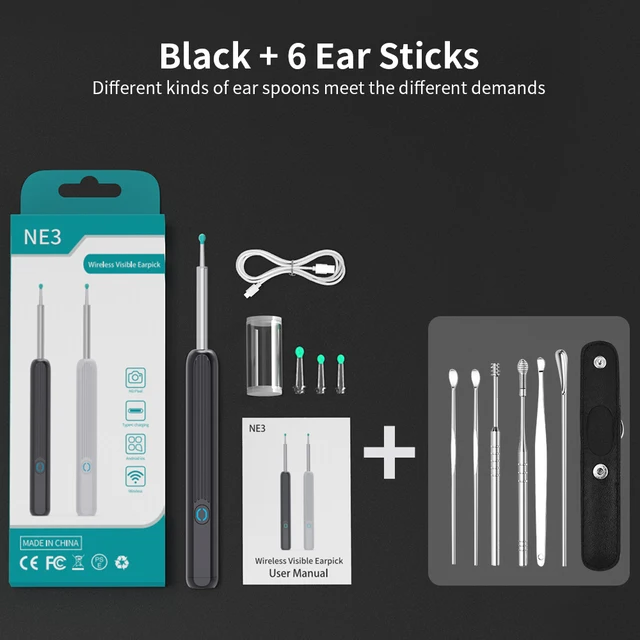Introduction
Ear wax, also known as cerumen, is a natural substance produced by the body to protect our ears from dust, debris, and infections. However, excess ear wax can lead to discomfort, hearing loss, and other health issues. Therefore, the need to clean our ears arises. With the rise of technology, various ear wax cleaning device (French:appareil pour nettoyage oreille cérumen) has flooded the market. This article will explore the different types of these devices, how they work, their pros and cons, and important safety tips to keep in mind.
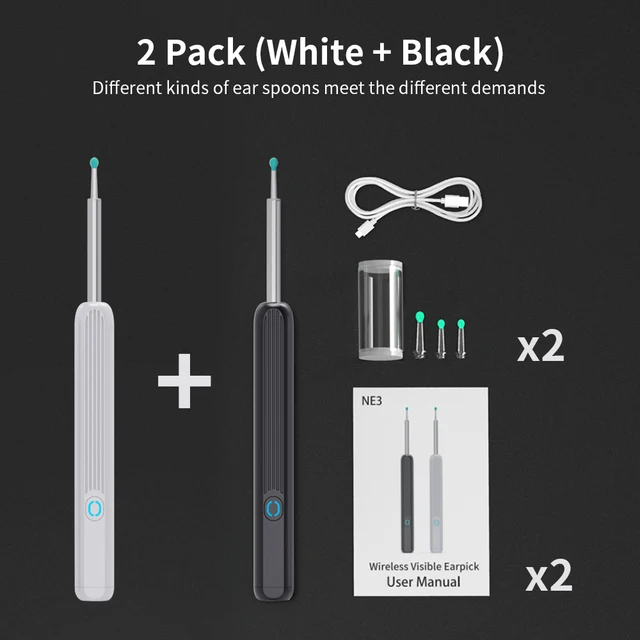
What is Ear Wax and Why is it Important?
The Role of Ear Wax
Ear wax serves multiple purposes. It helps to lubricate the ear canal and can trap foreign particles like dust and insects. This is a vital function, as the ear canal is delicate and susceptible to damage. The wax plays a crucial role in preventing infections. It contains antimicrobial properties that can help fight off bacteria and fungi.
The Process of Ear Wax Production
Our bodies produce ear wax in the outer part of the ear canal. This process is continuous. As the wax builds up, it naturally makes its way toward the outer ear, where it dries out and flakes off. Various factors can influence the production of ear wax, including genetics, age, and even hygiene practices. Some people produce more ear wax than others, leading to the occasional need for cleaning.
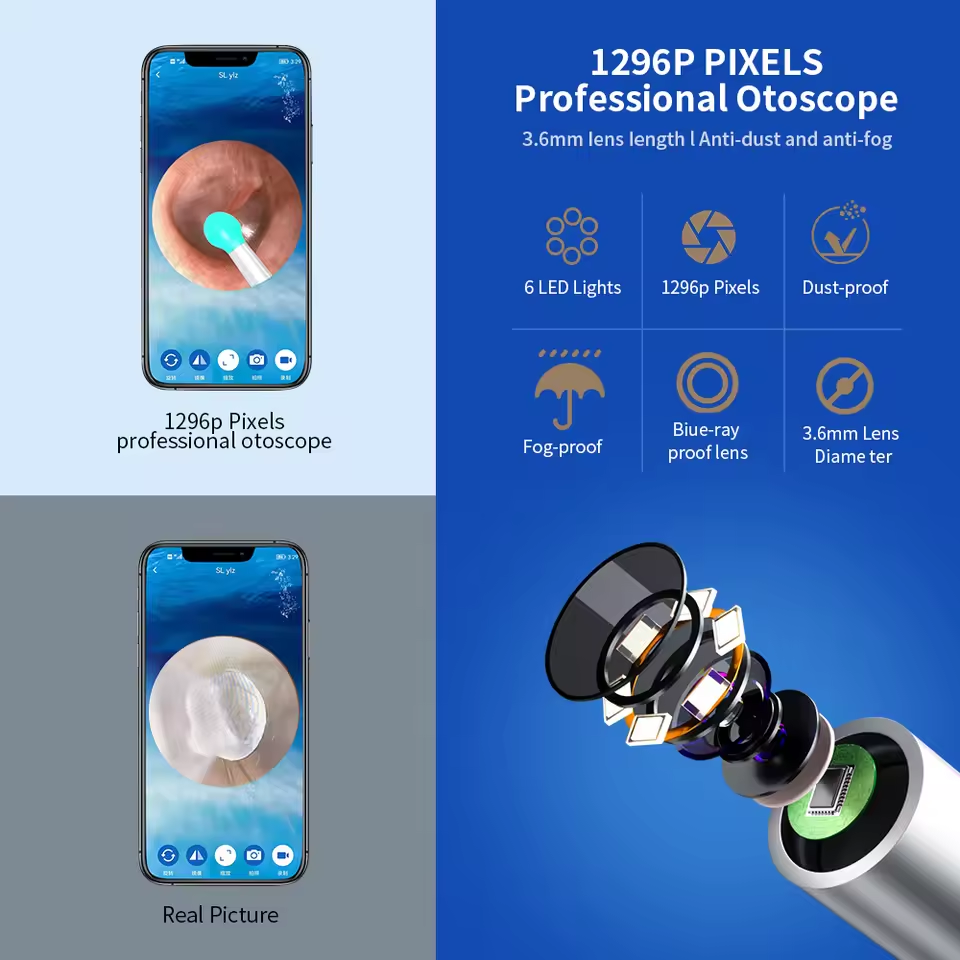
When is Cleaning Necessary?
Most of the time, our ears are self-cleaning. However, certain signs indicate you may need to clean your ears. These signs include a feeling of fullness, itchiness, pain in the ear, or reduced hearing. If any of these symptoms arise, it’s time to consider cleaning your ears. Excessive ear wax can lead to infections or other issues, so addressing it promptly is essential.
Different Types of Ear Wax Cleaning Devices
Manual Cleaning Tools
Manual ear wax cleaning tools are among the most common types of devices. These include ear spoons, cotton swabs, and ear picks. Each tool has its unique design and function.
Ear Spoons
Ear spoons are small, curved instruments specifically designed to scoop out wax. They come in various shapes and sizes, allowing users to choose the one that fits their needs. When using an ear spoon, it’s essential to be gentle. Pushing too hard can cause discomfort or even injury to the ear canal.
Cotton Swabs
Cotton swabs are versatile tools that many people use for ear cleaning. While they are convenient, they can also create problems. Inserting a cotton swab too far into the ear can push wax deeper, causing blockages. As a result, many health professionals advise against using them for ear cleaning.
Ear Picks
Ear picks are similar to ear spoons but often come with a pointed end. While they can be effective for wax removal, they require a steady hand. The risk of injuring the ear canal remains, so it’s crucial to use them with caution.
Irrigation Devices
Irrigation devices offer a different cleaning method. They use water or saline solutions to flush out ear wax. These devices can be particularly useful for individuals with excessive wax buildup.
Bulb Syringe
A bulb syringe allows users to gently squirt water into the ear canal. This device is often effective for softening wax, making it easier to remove. However, users should avoid using hot or cold water, as it can create discomfort.
Electric Ear Irrigators
Electric ear irrigators are more modern solutions. They offer better control over the flow of liquid and often have features to adjust the pressure. These devices can make the cleaning process more efficient and comfortable.
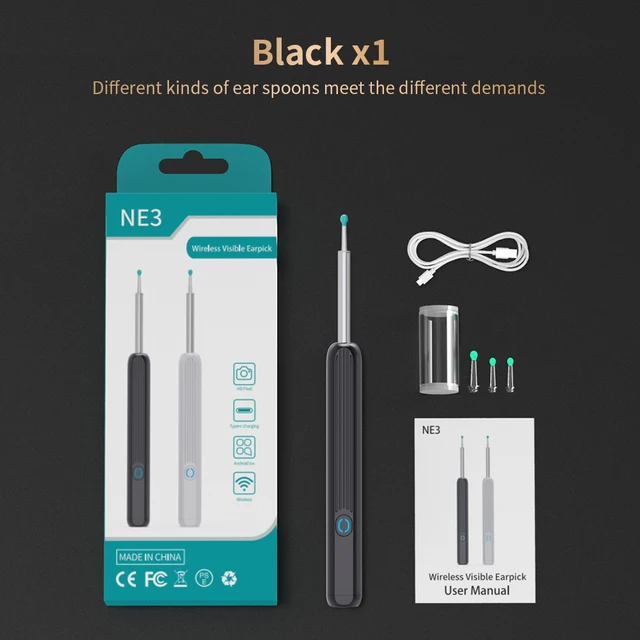
Innovative Devices
Recent technological advancements have led to the creation of innovative ear wax cleaning devices. These often include advanced features and enhanced safety measures.
Ear Camera
Ear cameras allow users to see inside their ear canals. These devices usually have a small camera attached to a flexible tube. They often connect to smartphones or tablets, allowing users to view the cleaning process in real-time.
Smart Ear Wax Removers
Smart ear wax removers are electronic devices designed to remove ear wax effortlessly. They often come with suction capabilities, making them effective at clearing out excess wax. These devices are becoming increasingly popular due to their ease of use and effectiveness.
Choosing the Right Ear Wax Cleaning Device
When choosing an ear wax cleaning device, it’s important to consider several factors to ensure that you select the right one for your needs. These factors include:
1. Effectiveness
The effectiveness of an ear cleaning device depends on the type of wax buildup you have. If you have mild wax buildup or just need regular maintenance, manual tools may be sufficient. However, if you have stubborn or impacted ear wax, an electronic device like a suction-based or irrigation system may be more effective.
2. Safety
Safety is crucial when cleaning your ears. Avoid using devices that might push the wax deeper into the ear canal or cause injury. Ensure that the device you choose is designed for safe and gentle use. Look for devices that are FDA-approved or have certifications that guarantee their safety.
3. Comfort
Comfort is an important consideration, especially when using electronic devices. Choose a device that has soft, flexible tips or adjustable suction levels to ensure a comfortable experience. If you are sensitive to noise, you may want to avoid loud suction devices and opt for quieter models.
4. Ease of Use
The ease of use is another factor to consider. Some people may prefer manual tools, as they are simple and straightforward. However, others may prefer the convenience of electronic devices that offer a more hands-off approach. Consider how comfortable you are with the device and whether it fits your lifestyle.
Pros and Cons of Ear Wax Cleaning Devices
Benefits of Using Ear Wax Cleaning Devices
Using ear wax cleaning devices can provide various benefits. For one, they can help maintain ear health by removing excess wax. This can reduce the risk of ear infections and other health issues. Additionally, cleaning your ears can improve overall hearing. Blocked ears can diminish sound quality, leading to frustration and discomfort.
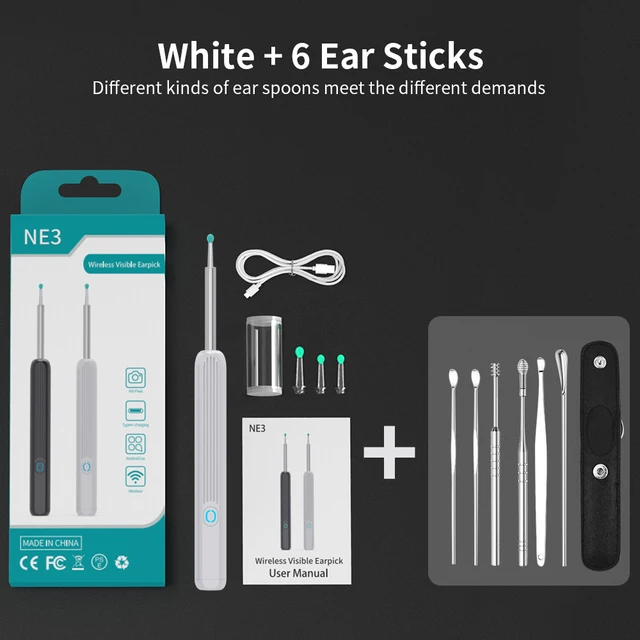
Easy and Convenient
Many ear wax cleaning devices are user-friendly. They usually come with easy-to-follow instructions. For example, bulb syringes often have clear guides on how to use them effectively. This convenience allows users to take charge of their ear health without needing professional help.
Cost-Effective Solution
Purchasing an ear wax cleaning device can be more cost-effective than frequent visits to an ear specialist. Users can clean their ears at home, saving both time and money. Many devices are also reusable, further enhancing their cost-effectiveness.
Potential Drawbacks and Risks
While there are benefits, there are also potential drawbacks to using ear wax cleaning devices. One major concern is the risk of injury. Users can accidentally damage their ear canals if they apply too much force or insert tools too far.
Over-Cleaning Risks
Another drawback is that excessive cleaning can lead to problems. Over-cleaning can irritate the ear canal, producing even more wax. This creates a cycle of dependency on cleaning devices, ultimately leading to irritation and other issues.
Infections and Complications
Using poorly maintained or unhygienic devices can introduce bacteria into the ear, causing infections. Users must ensure that they clean and store their devices appropriately to prevent issues.
Safe Practices for Ear Wax Cleaning
Pre-Cleaning Preparations
Before beginning the cleaning process, there are essential steps to take. Start by washing your hands thoroughly to prevent introducing any bacteria into the ear. It’s also wise to gather all the necessary tools beforehand, ensuring a smooth cleaning process.
Choosing the Right Device
Selecting the appropriate ear wax cleaning device is vital. Consider personal preferences and specific needs. Are you comfortable using manual tools, or would you prefer the ease of an electric device? Choosing the right tool will enhance the cleaning experience.
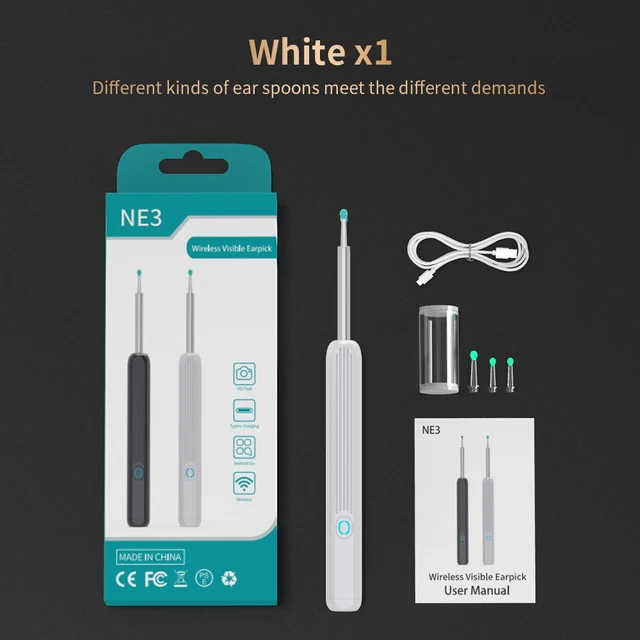
Follow Instructions Carefully
Once you’ve selected a cleaning device, it’s crucial to follow the manufacturer’s instructions. Each device may have specific guidelines on how to use it safely. Ignoring these can lead to complications or injuries.
Be Gentle
No matter what cleaning device you use, be gentle with your ears. The ear canal is sensitive and can be easily damaged. Avoid inserting devices too deeply, and always be mindful of how much pressure you’re applying.
When to Seek Professional Help
Signs that Require Medical Attention
While many people can manage ear cleaning at home, some situations demand professional attention. If you experience severe pain, bleeding, or discharge from the ear, seek medical advice immediately. These symptoms can indicate an infection or other serious conditions requiring immediate attention.
Regular Check-Ups
Regular check-ups with an ear, nose, and throat (ENT) specialist can help maintain overall ear health. These professionals can provide professional cleaning services and assess any underlying issues. If you frequently experience wax buildup, consider scheduling annual or biannual visits to an ENT.
What to Expect During a Professional Visit
During a professional cleaning, the doctor will assess your ear health and determine the best cleaning method. They may use special tools designed for ear cleaning, ensuring minimal risk of injury. The process is typically quick and relatively painless, often providing immediate relief from any wax-related discomfort.
Understanding Your Ear Health
Visiting a professional not only helps with cleaning but also provides valuable insights into your ear health. The specialist can offer personalized advice on maintaining ear hygiene and discuss any concerns you may have.
Conclusion: Your Ear Health is Essential
Maintaining ear health is crucial for overall well-being. Understanding the role of ear wax, the available cleaning devices, and safe practices can empower individuals to take charge of their ear care. While ear wax cleaning devices offer various benefits, it’s essential to understand their limitations. Never hesitate to seek professional help if needed. Your ears are essential, so give them the care they deserve!
